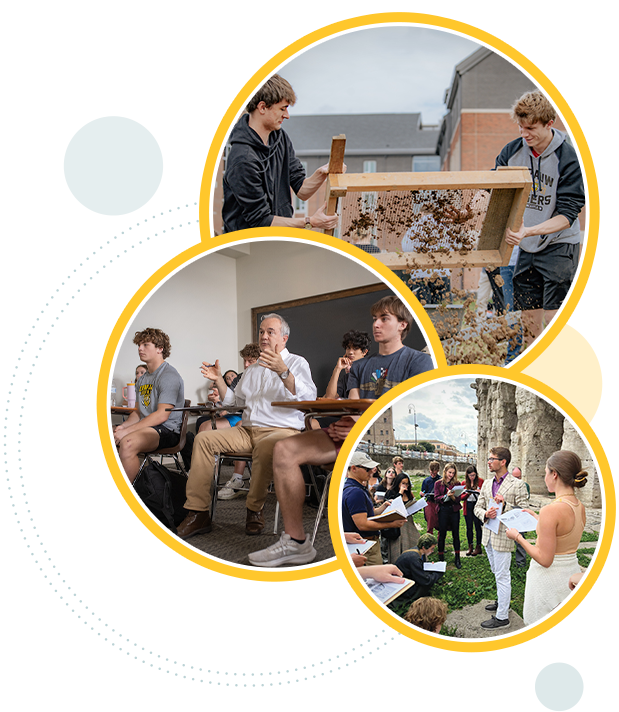At the heart of nearly every thriving career is the ability to connect with others and effectively share important ideas. These are precisely the skills that you’ll acquire with a communication major from DePauw. Through the study of contemporary culture, media and human relationships, you will learn how to become a capable communicator in any environment you enter – public relations, sales, human resources, journalism, business and many more.
While the DePauw communication major equips you to understand and analyze media in its many forms, it also empowers you to become a creator of media, as well. With classes that emphasize production and professors that prioritize innovation, you will quickly find yourself on the leading edge of cultural transformation. Many students also complement their coursework by taking advantage of the co-curricular opportunities and award-winning student media outlets such as the D3TV television station and WGRE radio station.
| Major | Degree | School | Format | Course Credits |
|---|---|---|---|---|
| Communication | Undergraduate, B.A. | College of Liberal Arts and Sciences | On Campus | 9 Courses |
Communication
Undergraduate, B.A.
On Campus
9 Courses

Leveraging the resources of the College of Liberal Arts and Sciences, the communication major at DePauw is housed in the Department of Communication and Theatre. This department brings together the humanities, arts and social sciences to create learning experiences that foster creativity and critical thinking.
